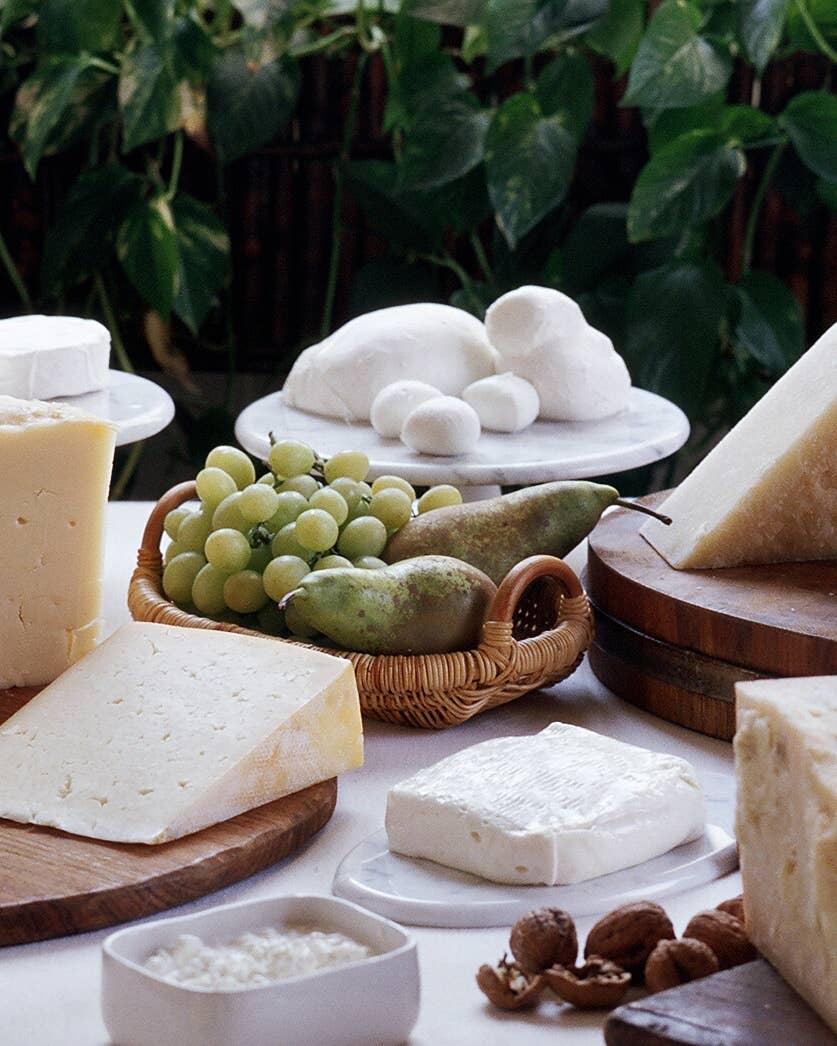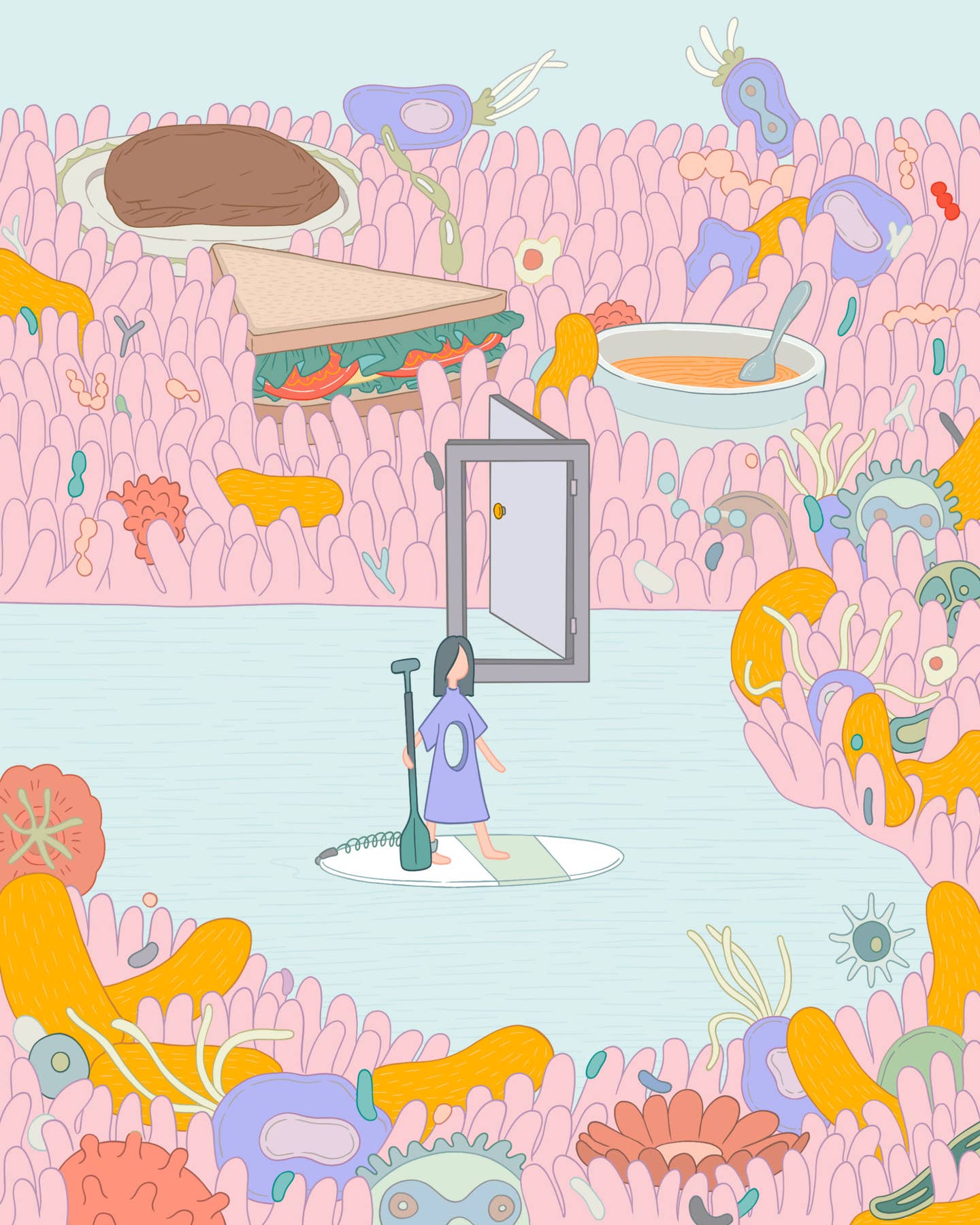
How to Hunt an Octopus With a Trident Gun
Diving for dinner in the Aegean Sea in search of the three-hearted beast
First, look for their silvery eyes. And the murky holes where they nest, the way their legs sprawl out across the swaying seaweed as they swish from place to place. Danai Kyriaki, Greek zoologist, schoolteacher, and diver, is describing how to hunt an octopus as she prepares to go in after her purple prey. She paddles through the blue-green Aegean, ducking her head below. At first, nothing is visible except a few fish too small to eat and shelled mollusks stuck to rocks.
Kyriaki, 26, lives in Thessaloniki, Greece's second-biggest city, but she returns often to Chalkidiki, a series of peninsulas in the north, to reconnect with the sea. She started spearhunting at 12 when her father, an experienced hunter, handed her the gun for the first time.
Away from shore, pebbles and urchin-coated crevices give way to smooth sand and seaweed forests. Kyriaki makes a slow left turn until she's parallel with the beach, and points out what's living in divots and holes in the sand—a long, brightly striped fish and several graceful purple octopuses that she'll take aim at every so often. She doesn't shoot at anything unless she knows she'll hit it.
Before he instructed her in the art of aquatic hunting, Kyriaki's father allowed her to paddle through the water behind him as he pointed out what was edible (octopuses) and what was not (moray eels). Although octopus is common at the Greek table, Kyriaki doesn't know many hunters outside a few male friends who live in other parts of Greece. She's a rarity in Chalkidiki and most of Greece, as not many people—especially young people—still take to the water in pursuit of octopus. It's particularly labor-intensive work for potentially little gain, and there are easier ways to catch your octopus, like on a fishing line or in a trap.
Even after Kyriaki got her gun, the octopus eluded her—she wasn't an "instinct hunter," as she puts it, and her father continued to be a lookout, swimming alongside, pointing them out, and shooting them for her. Three years passed until she found and made her first kill. Watching her swoop smoothly down upon a hidden octopus, you'd never know she once struggled to find her prey at the bottom of the sea. When Kyriaki brings her catch to shore, her mother prepares it. Sometimes it's grilled, or boiled in water with vinegar and olive oil. Dinner is often served at a table outside overlooking the crystal blue of the Mediterranean.
Kyriaki has been looking at this same stretch of sea and the terrain below for 20 years, and now knows where octopuses are likely to gather—in a hollow brick nestled on the sea floor, for instance. After she floats down and lines up the shot, there's a soft pop that reverberates through the water. She returns to the surface in a cloud of tiny bubbles, octopus affixed to the end of her three-tined spear gun. Soon, Kyriaki is sinking again, this time toward a narrow tire around whose rim purple tentacles are gently spread. The octopus barely has time to move.
Octopuses don't always die when you shoot them, so even if you manage to get one at the end of your trident, the fight is far from over.
Kyriaki pulls the animal from the water, its body stretching to her elbow, and immediately its long tentacles wrap around her wrist and down her arm, shimmering purple and green in the sun. It spews ink, spurting a bloody brown onto her snorkel mask. Once the fight is over, she cuts the head at the crease where its tentacles are attached, flips it inside out, and tosses out a gray mass of guts. When they finally loosen, the tentacles fall away from her wrist to reveal a tendril of suction cup-shaped bruises. She drops her prize into a mesh bag slung around her waist.
This is a particularly good hunting day, Kyriaki says. There are three octopuses in her bag, which is more than she shot in her first seven years of hunting combined. She didn't hit her stride until the summer she turned 21, when her father passed away. That summer, she hunted them more easily and brought her tally up to seven.
To Eat or Not to Eat? We Ask the Experts About the Ethics of Octopus
Peter Godfrey-Smith, philosopher of science and author of Other Minds: The Octopus, the Sea, and the Deep Origins of Consciousness
After spending so much time observing octopuses and cuttlefish, was your appetite for the creatures deterred?
I don't eat octopuses anymore. I stopped at some stage during the writing of Other Minds. I regard this as a somewhat sentimental decision, though. I am not a vegetarian, and in general I try to avoid eating the products of cruel factory farming. Compared to other kinds of meat, octopuses are not a particularly bad animal to include in your diet, as octopuses are wild-caught, short-lived, and not endangered. They are sensitive animals and I think they often suffer when they die. I am attached to them now in a way that prevents me from eating them.
Dave Pasternack, chef at New York City's Esca, lifelong fisherman, and acclaimed "fish whisperer"
As someone who cooks octopus regularly, are you ever deterred by claims of their intelligence?
I've caught octopus many times, they're spectacular creatures, beautiful to see in the water. I've been cooking it for 30 years and had it on the menu since we opened in 2000. Sometimes you look at octopuses as animals and sometimes you look at them as food.
Keep Reading
Continue to Next Story










